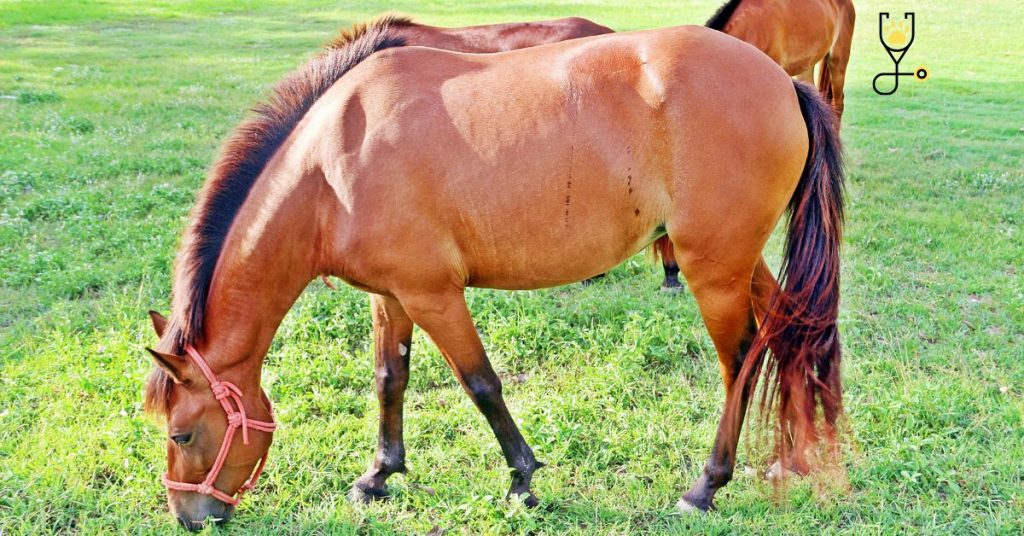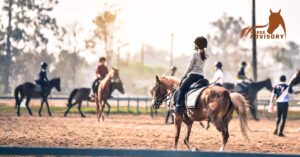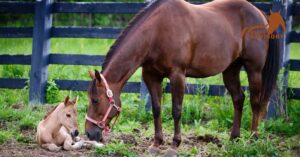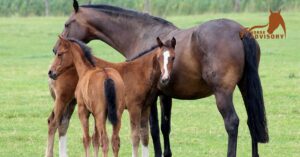weight gain in horses is a common concern for owners. A horse that is not at a healthy weight can experience health problems and may be less able to carry out everyday activities. There are many feeds on the market that claim to help a horse gain weight, but not all of them are effective. In this blog post, we will discuss 11 of the best feeds for helping a horse gain weight. We’ll also provide tips on how to correctly feed your horse so that he or she gains pounds in a safe and healthy way. So if you’re looking for ways to help your underweight horse gain weight, keep reading!
1. Horse Feed Balancer
One of the best feeds for helping a horse gain weight is a high-quality feed balancer. A feed balancer contains all of the essential nutrients that your horse needs to maintain good health, including protein, vitamins, minerals, and fats. Because it is highly concentrated, a small amount of feed balancer is enough to provide all of the nutrients that your horse needs.
2. Oats
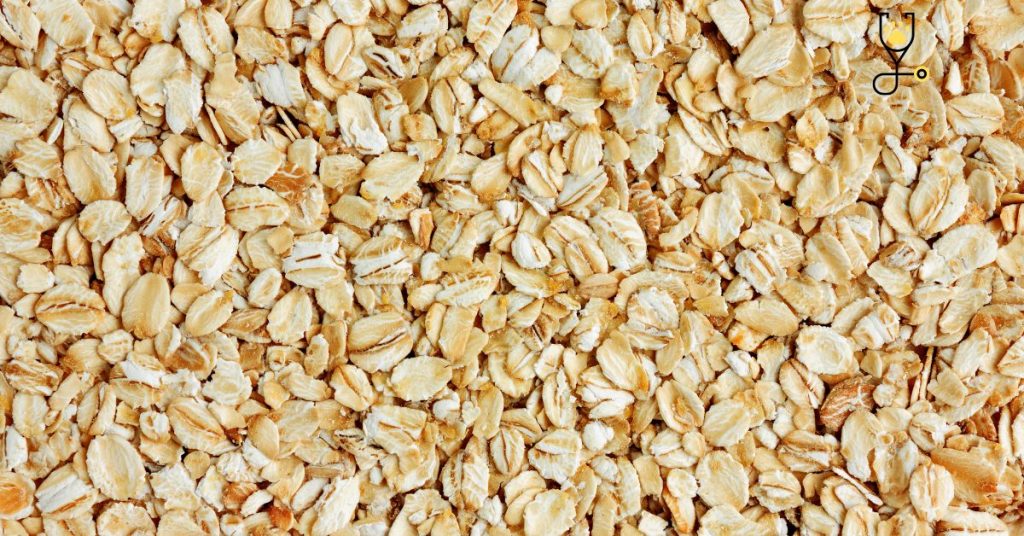
Oats are known for being a good source of soluble carbohydrates, which can help increase energy stores in horses and promote weight gain. In addition, oats are an excellent source of essential vitamins and minerals. It’s important to note that some horse breeds digest oats better than others, so consult with your veterinarian about whether or not your horse will benefit from eating more oats.
3. Alfalfa Hay
When it comes to helping a horse regain weight, alfalfa hay is highly recommended by many equine experts due to its high nutrient content. Like oats, alfalfa hay is a good source of protein and carbohydrates for horses, which helps to increase weight gain. High-quality alfalfa hay will contain the correct ratio of vitamins and minerals, so be sure to do your research before purchasing this feed.
4. Grains and Pellets
If you’re looking for a simple solution that is proven to help horses regain weight, grains and pelleted feeds can be an excellent choice. These types of feeds are typically made from corn or barley, as well as other ingredients, such as molasses, which provide a horse with lots of energy and nutrients. Just remember not to overfeed your horse when using grains or pellets since they can cause gastrointestinal problems if they aren’t consumed in moderation.
5. Rice Bran
Rice bran is another great source of carbohydrates and nutrients that help a horse gain weight. Many people choose to feed their horses straight rice bran, but you can also find pre-mixed feeds made with rice bran for convenience.
6. Soybean Meal
Soybean meal is one of the best feeds for helping a horse gain weight because it is high in protein and contains lots of vitamins, minerals, and amino acids. If your horse is sensitive to soy products, be sure to consult with your veterinarian before feeding them soybean meal or any other soy product.
7. Feed Supplements
In addition to using specific types of feeds for promoting weight gain in horses, another option is to invest in feed supplements such as vitamins, herbs, and probiotics that contain nutrients and ingredients that help a horse gain weight. There are many different products on the market, so be sure to research them thoroughly before selecting one for your horse.
8. Alfalfa Cubes and Pellets
Another option if you’re struggling to get your underweight horse to eat is alfalfa cubes or pellets. These types of feeds are highly palatable, which means they are typically very easy for horses to consume. Just remember not to overfeed horses who eat a lot of alfalfa since it’s high in protein and can cause digestive problems when fed in large amounts.
9. Supplements with High-Quality Fats
If you’re looking for an effective way to help your horse gain weight quickly, consider investing in supplements with high-quality fats as one of their ingredients. These types of supplements are especially beneficial for horses who need to gain weight quickly, such as those who are recovering from illness or injury.
10. High-Quality Extruded Pellets
One final option if you’re looking for an easy way to get your horse back on track is high-quality extruded pellets. This type of feed is highly palatable and contains all the nutrients that a horse needs to regain weight healthily and safely. Just remember not to overfeed your horse when using extruded pellets since they often contain large amounts of calories per serving.
Providing your underweight horse with nutrient-dense feeds may seem like a daunting task at first, but once you get a good feel for what type of feed works best for your horse, you’ll be well on your way to helping them regain the weight they need to stay healthy.
Tips to Help an Underweight Horse Gain Weight
Feeding an underweight horse can be a challenge, especially if you’re unsure of what type of feed will help them gain weight. Here are a few tips and tricks to help you get started:
1. Do Your Research Before Choosing Feeds
Before choosing any specific feeds for your underweight horse, it’s important to do some research and find out which types of feeds have been proven to adequately promote weight gain in horses. This will help ensure that you’re investing in the right types of feed for your specific situation.
2. Consult with Your veterinarian
If your horse is showing other symptoms besides being underweight, be sure to consult with your veterinarian before starting a new diet or feeding regimen. They will be able to advise you on the best course of action based on your horse’s individual needs and medical history.
3. Monitor Your Horse’s Progress Regularly
It’s important to monitor your horse’s progress regularly when helping them gain weight, especially if they are still underweight or having trouble keeping the weight on after starting a new diet or feeding regimen. This will help ensure that their weight is increasing as expected and allow you to make any necessary changes along the way.
4. Add Supplements to Their Diet When Needed
If your horse isn’t gaining weight as quickly as you’d like, consider adding supplements such as vitamins, probiotics, or fatty acids to their diet in order to increase their daily calorie intake. However, be sure to consult with your veterinarian before adding any supplements to your diet.
5. Avoid Overfeeding Your Horse
It’s important to avoid overfeeding your horse when trying to help them gain weight since this can lead to a wide array of health problems and make it even more difficult for them to gain weight safely and effectively. Be sure to only feed the recommended amounts of feed for your specific breed, age, and size of horse in order to keep things on track.
Giving your underweight horse the nutrients they need is essential if you want them to stay healthy and strong as they grow older. By using these tips, you’ll be well on your way toward helping your horse regain weight effectively and efficiently.
Conclusion
When trying to help your underweight horse gain weight, it is important to do your research, consult with a veterinarian, monitor progress regularly, and avoid overfeeding. Other useful tips include choosing high-quality feeds such as extruded pellets or adding supplements such as vitamins, probiotics, or fatty acids when necessary. With these tips in mind, you can help your horse gain weight quickly and safely.
Frequently asked questions
Q: What are some of the most common reasons horses become underweight?
A: There are a number of different factors that can contribute to a horse becoming underweight, including poor diet or nutrition, illness or disease, stressful conditions such as transportation or changes in the environment, and more. Factors like these should be considered when trying to determine why your horse has lost weight and what steps can be taken to help gain it back.
Q: How can I tell if my horse is gaining weight effectively?
A: There are a number of different signs and symptoms that can indicate whether or not your horse is gaining weight as expected, including changes to their body condition score, changes in appetite or eating habits, changes in energy levels, and more. Monitoring these sorts of things on a regular basis will help you determine when your horse needs additional support or adjustments in order to continue gaining weight safely and effectively.
Q: Are there any risks associated with helping an underweight horse gain weight?
A: Yes, there are a number of potential risks associated with helping an underweight horse gain weight. These can include health problems such as liver damage, gastrointestinal issues, or metabolic issues, so you should always consult with a veterinarian before making any major changes to your horse’s diet or feeding regimen.
Q: How can I ensure that my horse stays healthy and strong as they gain weight?
A: There are a number of things you can do to keep your horse healthy and strong while helping them gain weight, such as providing them with high-quality feed, monitoring their progress regularly, giving them time to adjust to any changes in diet or environment, and avoiding overfeeding them. With these tips in mind, you can help your horse gain the weight they need safely and effectively.
Q: Are there any steps I can take to help speed up my horse’s weight gain?
A: Yes, there are a number of things you can do to help your horse gain weight more quickly. These might include switching to high-calorie feeds or supplements, providing additional support and nutrients such as probiotics or vitamins, working with your veterinarian to determine the underlying cause of their weight loss and come up with a tailored treatment plan, and more. With these tips in mind, you can help your underweight horse gain weight safely and effectively.

